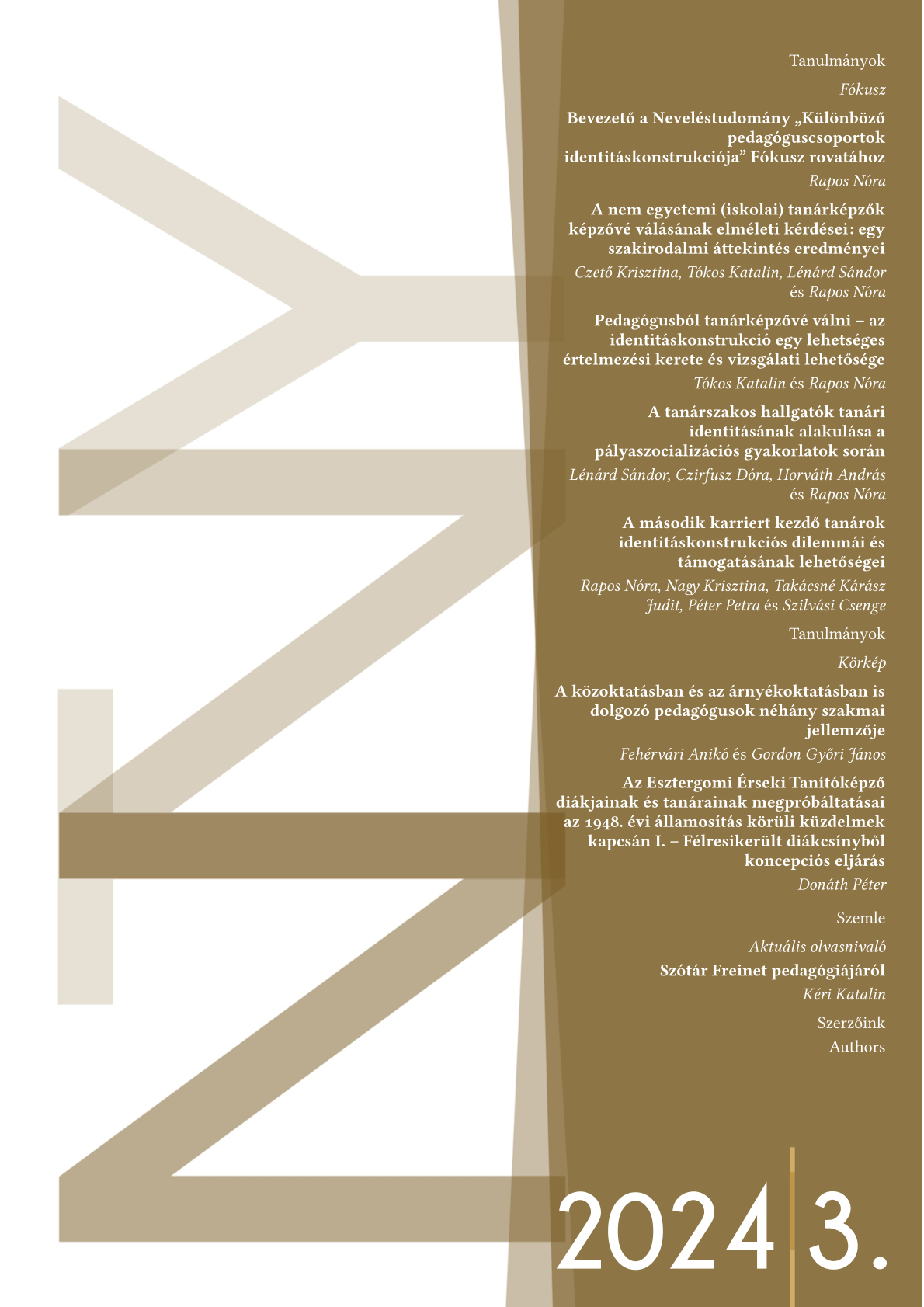Abstract
The global changes affecting teacher education, policy reforms, and the continuous change in the regulation of the Hungarian teacher education programme, on the one hand, strengthen and, on the other hand, raise new questions regarding the professional identity construction of teacher education actors. However, a scientific analysis of the problem is yet to be done in the Hungarian context. One of the essential factors altering teacher education programmes is the newly introduced practices named Career knowledge and career socialisation (see EMMI decree 8/2013 (I. 30)). As a result, a new group of teachers working at schools were required to be teacher educators. At the same time, little attention was paid to the interpretation of their role and professional support of them as teacher educators. This study establishes the theoretical framework of our planned research on this topic. On the one hand, we deal with becoming a teacher educator, which can be interpreted as learning or identity construction, in which we mainly focus on the relationship between the two concepts. On the other hand, our study attempts to describe the theoretical framework and formal model underlying our research.

